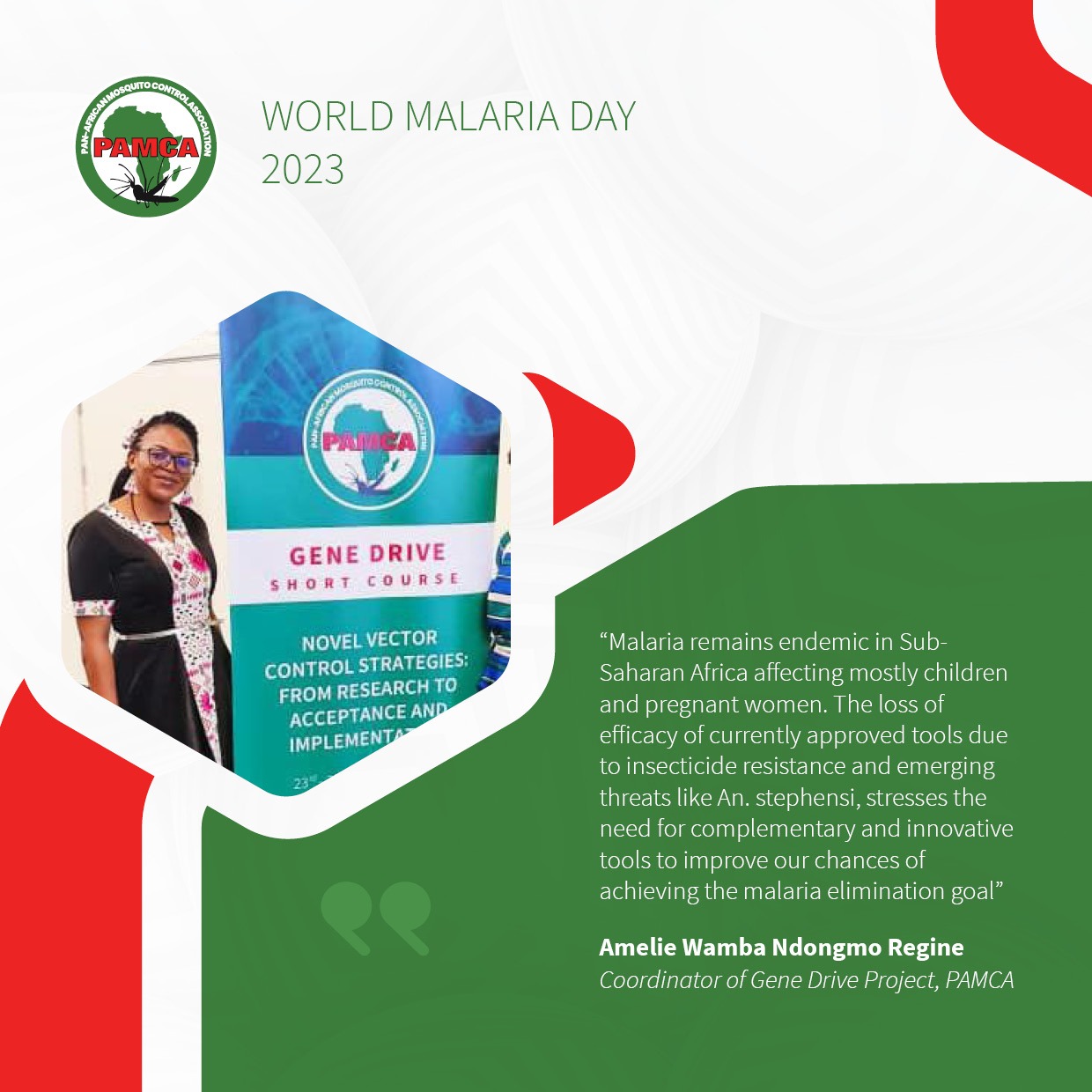WORLD MALARIA DAY 2023
Amelie is the Coordinator of the Gene Drive Project at PAMCA. She is currently pending defence for her PhD in Biochemistry with a specialization in Biotechnology and Development at the University of Yaoundé I, Cameroon, under a scholarship from the Centre for Research in Infectious Diseases (CRID) and through a Wellcome Trust funded project. In her research, she has worked to elucidate underlying biochemical mechanisms driving insecticide resistance in malaria vectors across Africa.
As a STEM enthusiast, she is passionate about the use of innovative technologies to improve health systems and the quality of life. Amelie is a 2019 Mandela Washington Fellow from Georgia State University under the Leadership in Public Management track at the Andrew Young School of Policy Studies in Atlanta, USA. She was also recently selected as a malaria advocate speaker for The Global Fund Advocates Network (GFAN), to work with The Global Fund along with other activists to demand health for all and encourage collective engagement in the fight against malaria.
Experience with malaria and research work
Malaria is highly endemic in Cameroon, where Amelie comes from, meaning the entire population is regularly exposed to the disease. Growing up, Amelie personally witnessed the suffering malaria can cause and the huge strain this disease puts on people’s financial status and their ability to work/ attend school. This sent her on a quest to understand the reason why malaria is still a significant challenge in Africa. She has always wanted to improve the living standards of her community and thus, decided to focus her studies and career on efforts to combat malaria. To this effect, her PhD research focused on exploring the underlying mechanisms and drivers of insecticide resistance in the Anopheles funestus mosquito - a major vector of malaria in Central Africa, with the aim of developing knowledge which could inform the implementation of more effective intervention and management strategies for vector control.
As the Coordinator of the Gene Drive Project at PAMCA, Amelie works on educating and building capacity around the potential use of innovative tools to fight malaria, such as gene drive technologies. Genetic modification of mosquitoes through gene drive is a promising new approach which is currently being investigated as a potential tool to control the spread of malaria and other vector-borne diseases. Amelie aspires to reduce the gap between researchers, communities, and decision-makers to enhance the development and implementation of more effective and integrated malaria control strategies.
The emergence of challenges such as that of growing insecticide resistance or the threat posed by the recent spread of the malaria vector Anopheles stephensi on the African continent, means that new tools are needed more than ever to make the malaria elimination goal achievable. To understand more about innovative technologies and the policies governing their development and implementation, Amelie attended the COP 15 and MOP 10 UN meetings of the Convention on Biological diversity in December 2022 in Montreal where the global biodiversity framework for 2030 was drafted. Capacity building is therefore a key focus for Amelie especially in all related aspects to innovative technologies like gene drive.

